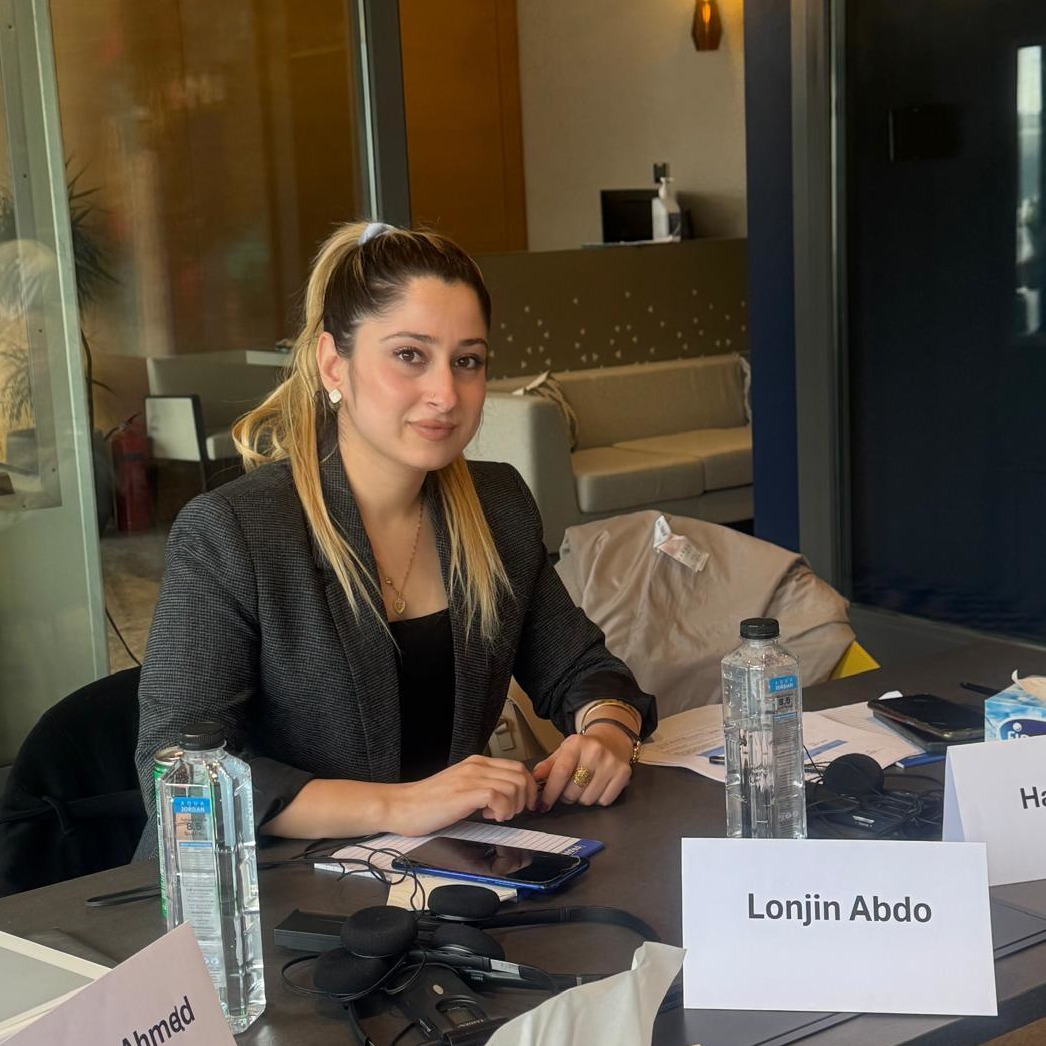Interview: Lonjin Abdo with Lelun Association
Lonjin Abdo is the co-founder of Lelun Association for Victims. She was detained and tortured in the secret prisons run by factions of the Turkish-backed Syrian National Army (SNA) in Afrin, and established Lelun after her release. Lonjin also discusses the demands for transitional justice and the right for displaced people to return.

RIC: Can you introduce yourself and your goals? What inspired you to establish the organization?
Lonjin Abdo: The Lelun Association for Victims was established on March 17 2023, as a human rights initiative led by survivors of human rights violations. The initiative aims to support and empower victims, particularly in areas that have witnessed armed conflict and systematic violations, such as Afrin in northwestern Syria. The association focuses on documenting violations, providing psychosocial support, and empowering victims, in addition to advocating for their causes locally and internationally.
The association’s work includes several key areas, most notably:
- Documenting human rights violations, with a special focus on violations targeting women and minorities.
- Providing psychosocial support programs for survivors and forcibly displaced persons.
- Empowering victims to participate actively in public life.
- Building solidarity networks among victims from various regions of Syria.
- Launching community initiatives to strengthen the voice of victims on issues of justice and equity.
The idea for establishing the association was inspired by bitter personal experience. I was a former detainee in Afrin’s prisons and witnessed the violations committed there. What hurt me most following my release was that no organization reached me to provide any kind of psychological, medical, or social support. This revealed a real void in providing support to the victims of our region. This created the need to establish an entity led by the victims themselves, to serve as a voice for them and a platform for mobilizing support and justice. Our geographical and social proximity to the region allowed us to easily reach the families and victims.
What do you want from transitional justice and how do you see the current process?
What we aspire to within the framework of transitional justice begins first with the release of all detainees. True justice cannot be achieved as long as prisons remain full of detainees in areas outside the [former Assad] regime’s control, particularly since the occupation of Afrin in 2018.
Second, we demand that those responsible for grave violations be held accountable, whether through domestic courts or international justice mechanisms. We recognize that immediate judicial accountability may be difficult under the current circumstances, but it is essential at the very least to remove those involved in the violations from positions of power.
What is currently happening in Syria does not reflect the spirit of transitional justice. Rather, it represents an insult to the suffering of the victims, especially since the focus of political and human rights discourse has been limited to victims of the regime, while systematically ignoring the victims of the SNA and other groups. This discrimination does not contribute to building a comprehensive justice process; rather, it perpetuates marginalization and reproduces violations in various forms.
We believe that transitional justice is incomplete without equal recognition of all victims, genuine guarantees of non-repetition, and justice for all of society.
Do you think the new government will enable the return of displaced persons from Afrin?
We believe in the right of those displaced from Afrin to return voluntarily and with dignity to their homes, and we hope this issue will be a priority for any new Syrian government. We believe that reaching a just and comprehensive political settlement will necessarily require addressing the issue of the return of displaced persons, and we will work to ensure that the return is dignified and safe, within a clear agreement with all relevant parties that guarantees the basic rights of returnees.
What is the significance of the appointment of Yara Abdul Qader Hasko to the negotiating delegation between the DAANES and Damascus, and what are your demands from the new government?
Yara Abdul Qader Hasko is a founding member of the Lelun Association. Since the association’s inception, she has played an active role in advocating for the rights of victims and survivors. Her participation as an independent member in the negotiating delegation in Damascus is a crucial step, as she represents the voice of victims, particularly detainees and those displaced from Afrin.
Our initial demands, which Yara will carry, are:
- The immediate and unconditional release of all detainees.
- Ensuring the dignified and safe return of the people of Afrin to their homes.
These demands represent the first step toward a comprehensive process to achieve justice and equity.

